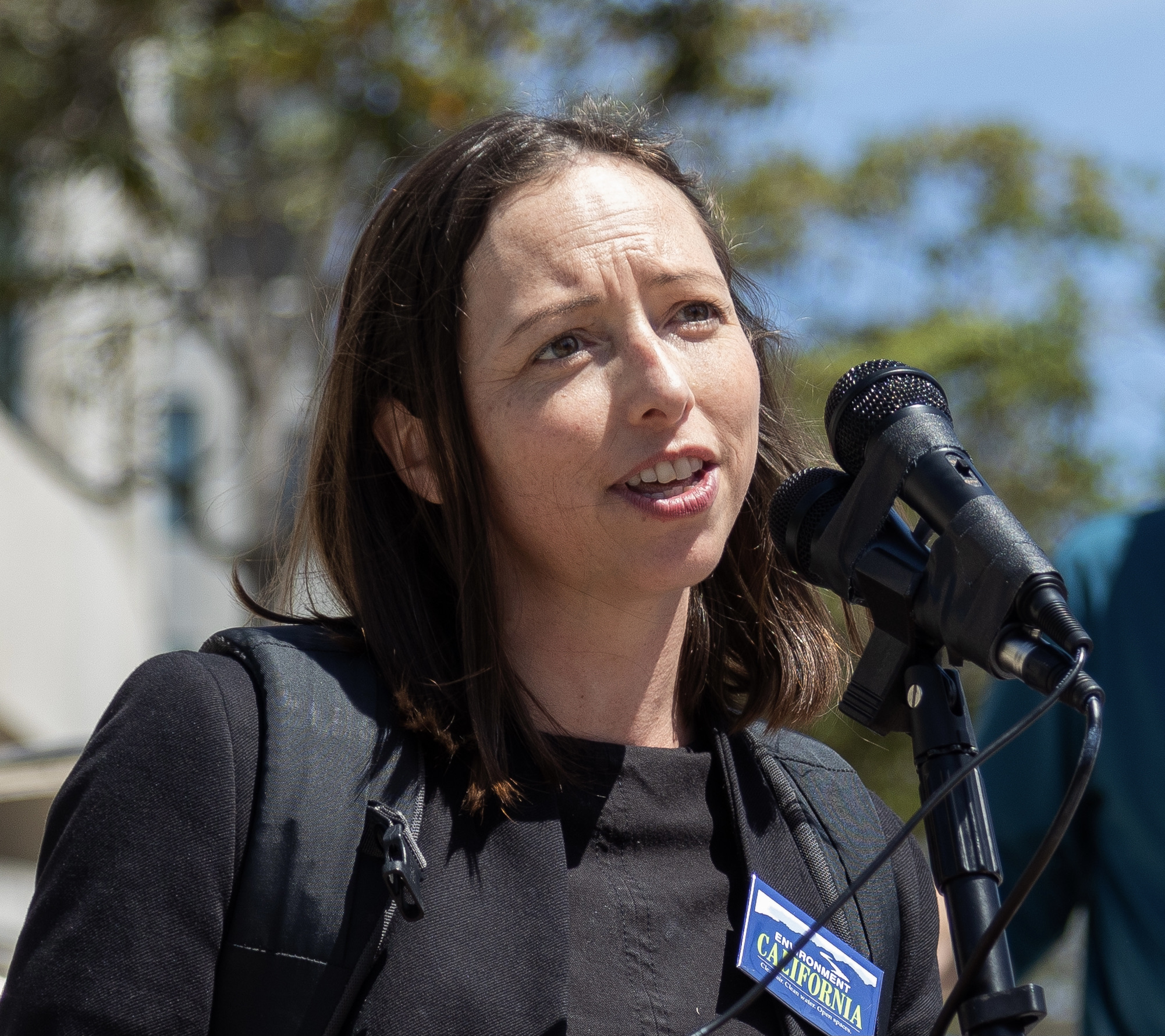
Here’s what we did to build support for action to save the bees in California
Gov. Gavin Newsom’s veto of an Environment California-backed bill to restrict the use of bee-killing pesticides is a blow to our bees and the ecosystems that depend on them. But our advocacy for pollinators will continue until the necessary protections are in place.
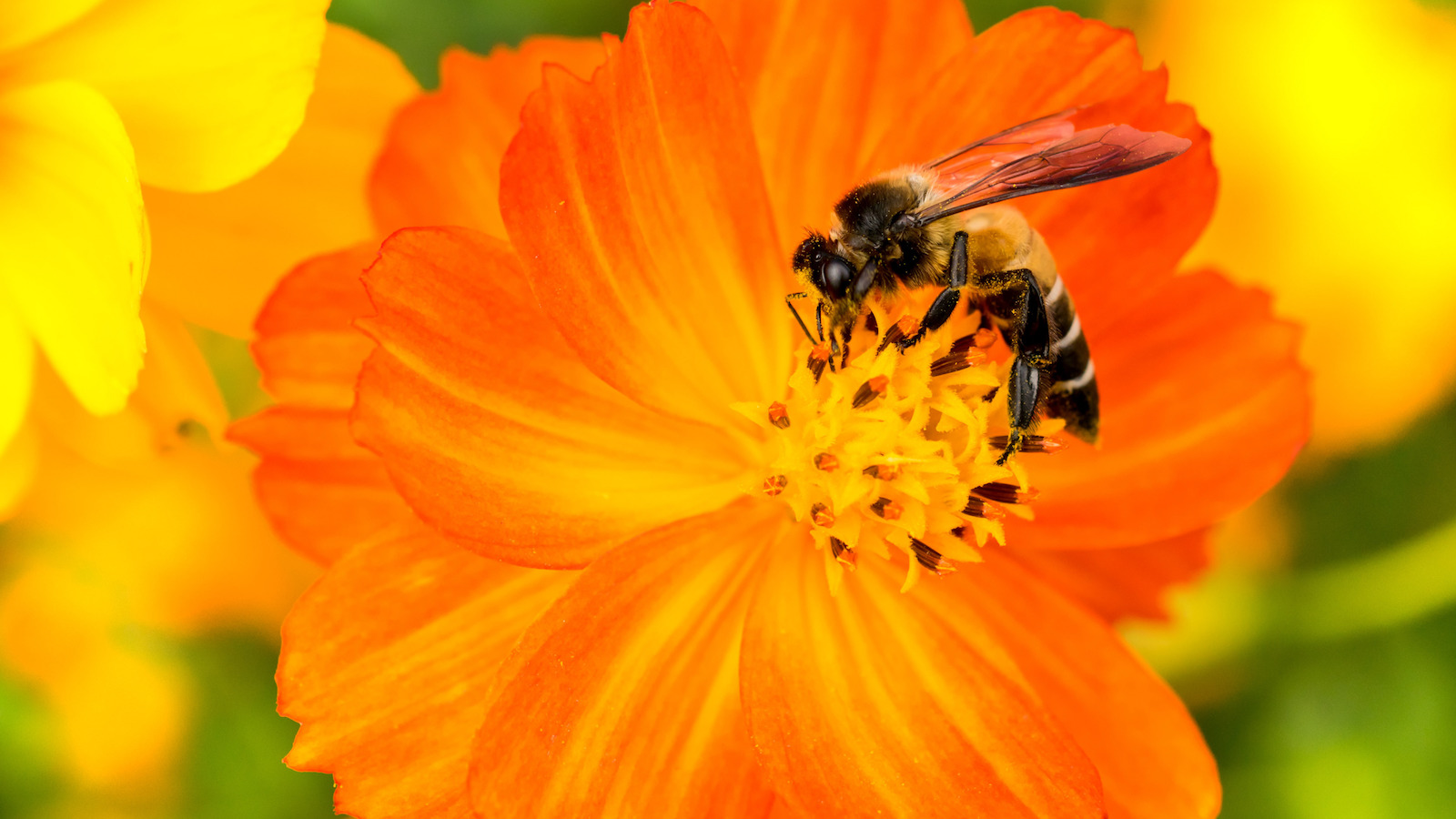
Neonics are systemic pesticides well-known to harm bees and other wildlife. At levels often found in the environment, neonics affect bees’ brain and reproductive development, make pollen-collecting trips longer and more exhausting, and prevent bees from ridding themselves of parasitic varroa mites.
An enormous and growing body of research reveals that neonics’ extraordinary toxicity and pervasiveness in California’s environment are rapidly killing bees and other pollinators, threatening native plants and crops that depend on insect pollination. To put it simply, with no bees, there would be no food. That’s why protecting pollinators has long been an organizational priority for us.
We were thrilled when the state Legislature passed Environment California-sponsored AB 2146 (Bauer-Kahan) to ban most non-agricultural uses of neonics. The bill would’ve restricted neonics in homes, gardens and golf courses.
Unfortunately, Gov. Gavin Newsom vetoed this bee-saving legislation on Sept. 29. Like so many Californians who stood up in support of the bill and the bees it aimed to protect, we’re disappointed in this outcome. California needs to move with urgency to protect our pollinators — other states have acted in a similar fashion, and the Golden State was poised to be the eighth to do so.
The silver lining here is that in his veto message, the governor called on his Department of Pesticide Regulation to issue rules in the coming year to address non-agricultural uses of neonics. Of course, that assumes the rules will be well-crafted and have teeth, and we’ll work with lawmakers to ensure that’s the case.
Despite this loss, we’re proud of the work we, our partners and our supporters did to get so close.
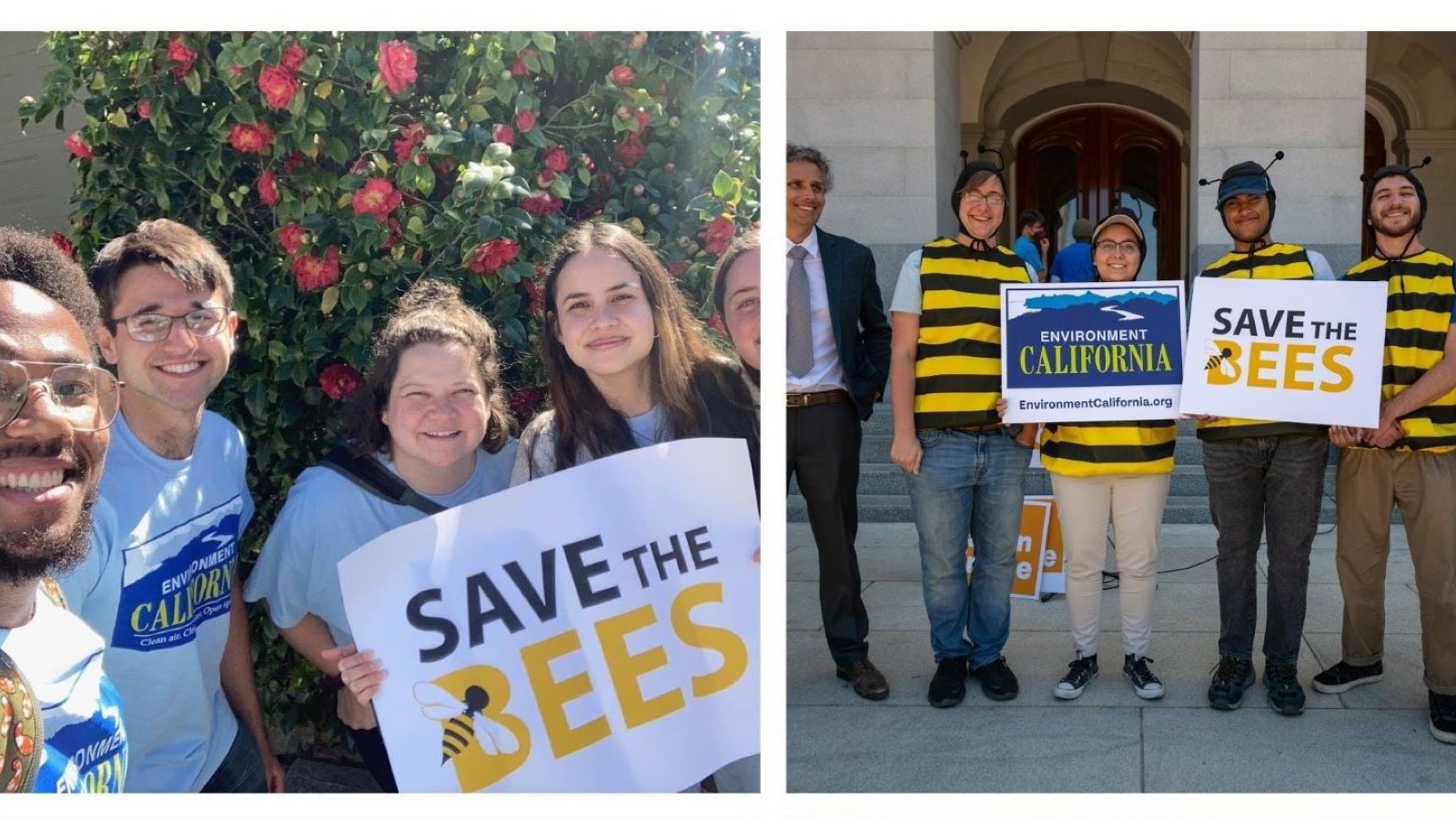
For years, our team has been working to create the space for statewide action to protect pollinators and stand up to Big Agriculture. To make action possible, our community outreach staff have held tens of thousands of face-to-face conversations with Californians at their doors, making the case in the media through letters-to-the-editor and op-eds, and generating visibility online.
This summer, our team focused on building support for AB 2146 by talking to thousands of community members throughout Los Angeles and the Bay Area in key districts and sending signatures and photo petitions to state legislators and the governor.
After the bill’s passage by the state Legislature, more than 8,000 Environment California members sent messages to the governor calling on him to sign it into law. We also released an interactive map showing the level of pesticide pollution in urban waterways caused by the most widely used neonics. As Ben Grundy, Environment California’s conservation associate, told CBS News, “92% of water samples in Southern California and 58% of samples in Northern California contained levels above the EPA’s benchmark for aquatic water systems.”
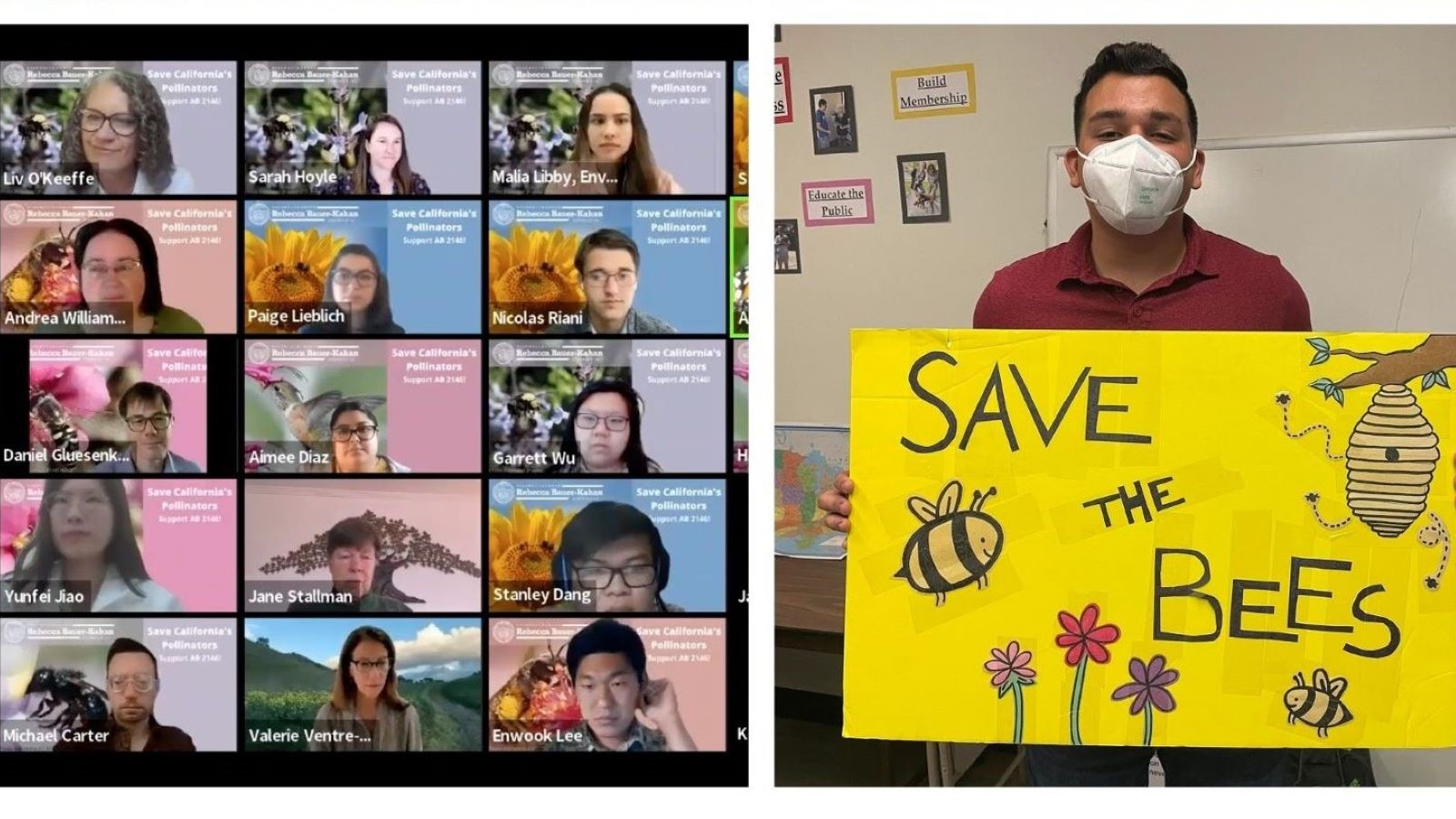
It’s unfortunate that our bees will have to wait for these crucial protections here in California. We came close, and with the wave of grassroots support that we built this time around, there’s every reason to believe that we may still get a victory for the bees in the coming year.
We thank California lawmakers for passing this bipartisan legislation and especially the bill’s author, Assemblymember Rebecca Bauer-Kahan, for working tirelessly for this bee-saving action. And of course, thank you to our supporters for the crucial role you continue to play in building a cleaner, greener, bee-safe future.
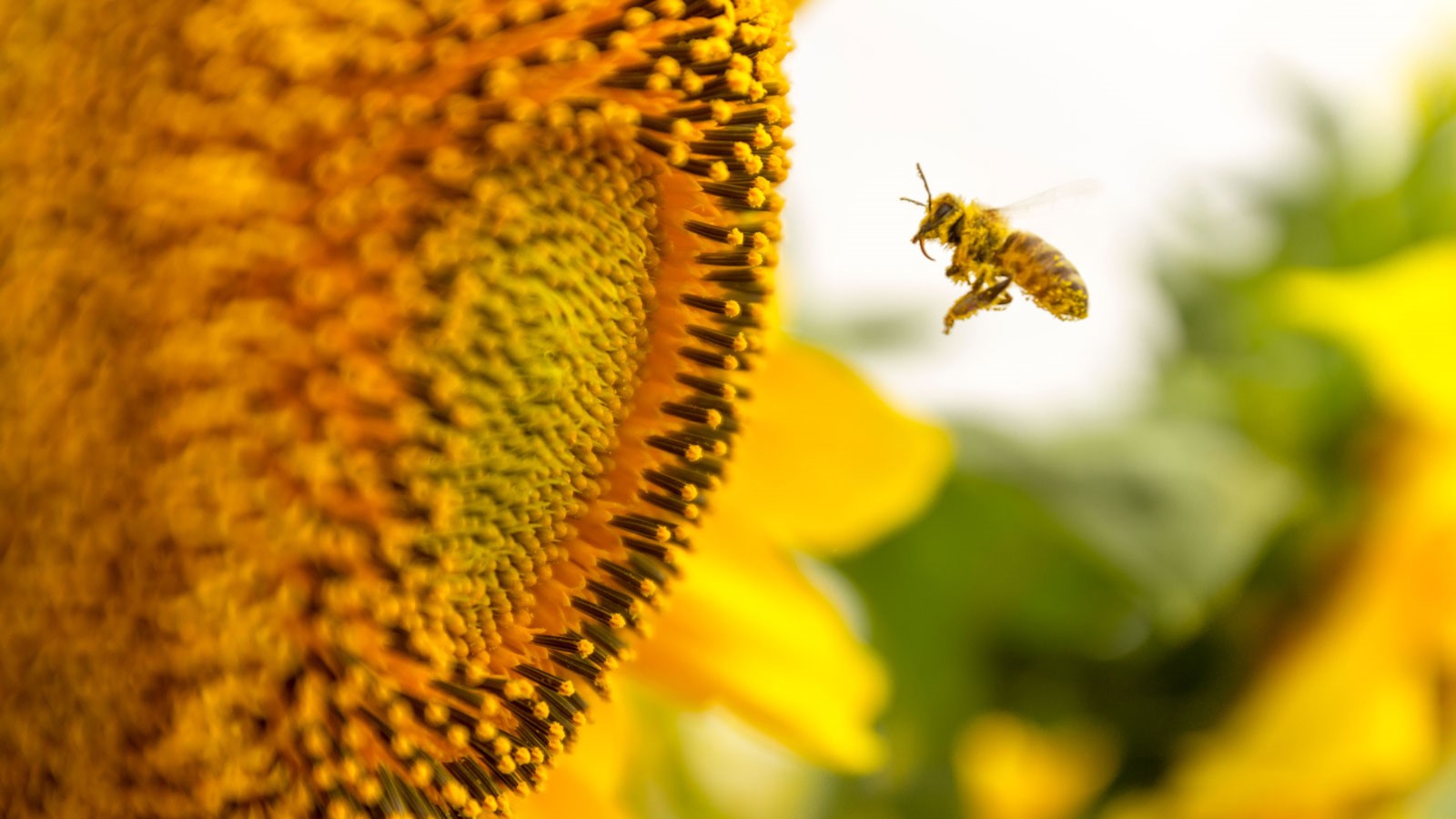
Tell the Biden administration: ban bee-killing pesticides from wildlife refuges
We can't afford to lose more bees -- especially in areas designated to protect them.
Topics
Authors
Laura Deehan
State Director, Environment California
Laura directs Environment California's work to tackle global warming, protect the ocean and fight for clean air, clean water, open spaces and a livable planet. Laura stepped into the State Director role in January, 2021 and has been on staff for over twenty years. She has led campaigns to make sure California goes big on offshore wind and to get lead out of school drinking water. As the Environment California Field Director, she worked to get California to go solar, ban single use plastic grocery bags and get on track for 100% clean energy. Laura lives with her family in Richmond, California where she enjoys hiking, yoga and baking.
Find Out More

What kind of planet protector are you?
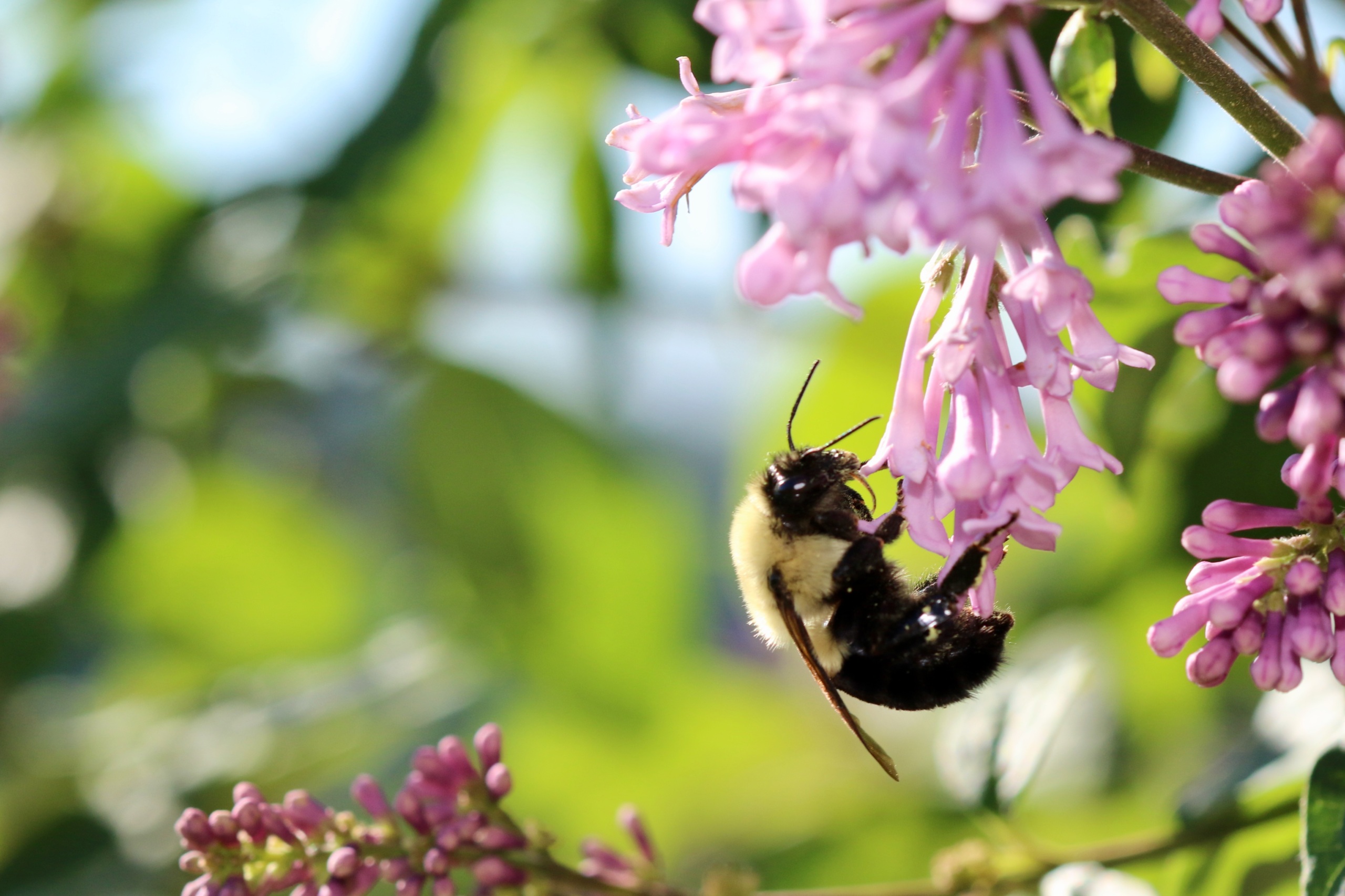
Why we should save the bees, especially the wild bees who need our help most
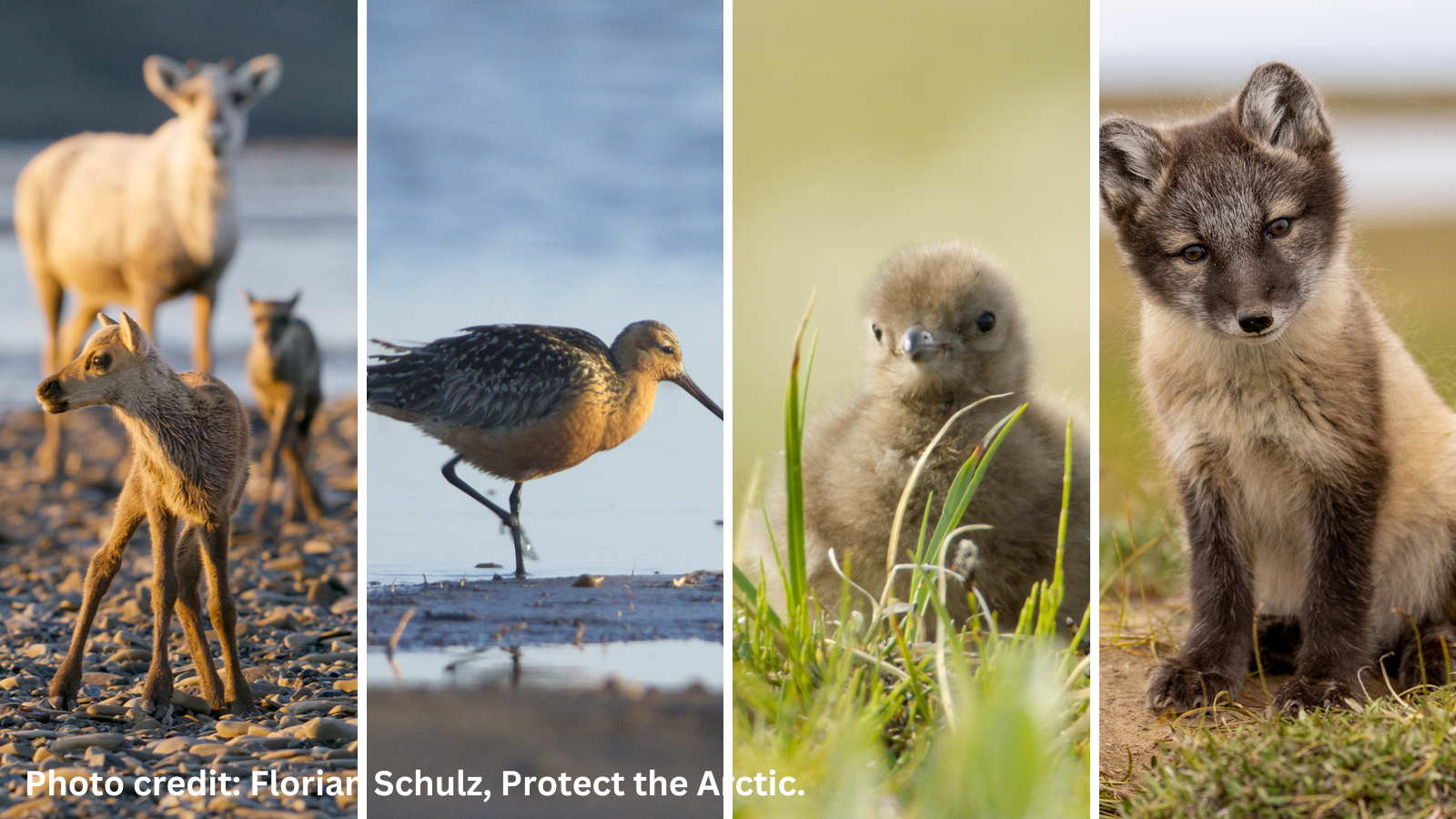
Why Alaska’s NPR-A, site of the Willow Project, deserves protection



